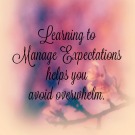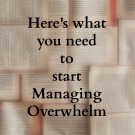Our current world is not a fan of solitude. It’s not a big supporter of people who want (and sometimes need) to spend time alone, and especially people who spend time alone for the sheer enjoyment of it. Usually, if we want to go away to do some Deep Thinkin’ and Relaxin’, the world says “you need to have a reason for this” as in – you can do this but then you should come home ready to work harder / more/ etc. Or, it’s OK to go away but it should only be for a set time and then once you’re back you shouldn’t need to go away again for several weeks or months. Worse yet, it sometimes rejects the idea of alone completely and tells you not so subtly that you cannot and should not want to take that time because if you do you’re going to “miss out,” “lose out,” and somehow instantly become deficient in some way. Simply put:
Our world pressures, guilts, and tricks us into believing that spending time alone means we are selfish and instills in us a fear of being left behind.
All of this, of course, is hogwash.
Unless you take being alone to extremes (yes – that’s selfishness), being alone means you recognize the benefits of being in a different environment and that the world will carry on without you and you’ll be OK. The important thing is to get in touch with how solitude makes you feel (without all the judgment and guilt) so you can start to work with all the stuff that comes up when you’re alone.
Try this exercise:
- Find ten minutes where you can be totally alone in a room. This means no other living beings (humans, pets, wild animals, etc.) can be present. Silence any tech gadgets (no vibrate, no blinking lights, nothing).
- Get comfortable, sit with your eyes open or closed, and just breathe normally. Resist the urge to get up and move around and instead stay seated.
- Notice your thoughts and emotions:
- What are you wanting to “do” instead of sit by yourself?
- Name the dominant emotions that are coming up and why you think you’re experiencing them.
- What are you “missing” most and why?
- What’s going on “out there” that you’re concerned about?
- Of the things you’re concerned about, how many of them are pressing and urgent or just things you think you need to keep up with?
- What thoughts can you think that will relax you during this time alone?
- How does the room feel after 5 minutes, after 10 minutes?
- After the 10 minutes is over, rate on a scale of 1-10 how anxious you were about “checking in” with living creatures and / or your tech devices to see if you’d missed anything while you were away. If this number is 7 or higher, ask yourself why you were anxious and if that anxiousness is rooted in things that directly affect you personally, or if you were more concerned about things going on in pop culture / society at large.
By embracing solitude, even a little at a time, you’ll learn to calm your mind and sort out what’s most important to you all while gaining a comfort level around the fact that you won’t be “left behind.” Try this exercise once or twice a month and see how it can help you shift from anxious to calm over time.






